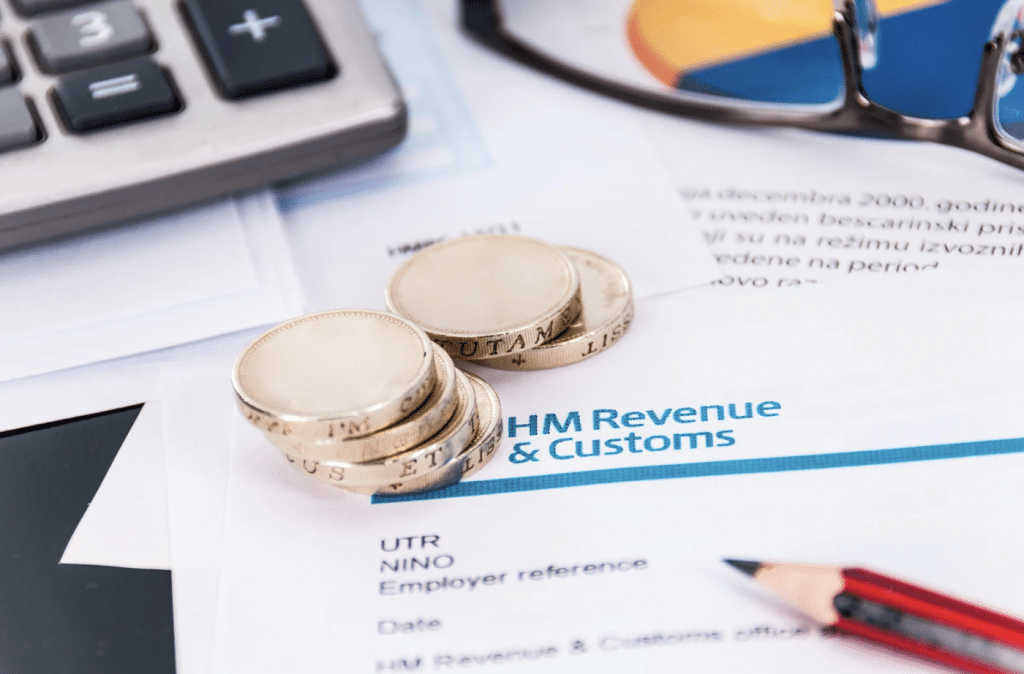Discover how savvy UK taxpayers manage paying taxes when working abroad. Learn about residency rules, PAYE refunds, split year treatment, NIC obligations, and smart strategies to avoid overpaying tax while living overseas.
Table of Contents
-
- Working Abroad: How UK Tax Applies Based on Your Work Situation
- Understanding UK Tax Residency Rules for Expats
- Split Year Treatment: Reducing UK Tax After You Move Abroad
- What Counts as ‘Work in the UK’? Understanding HMRC Definitions
- PAYE Tax When Working Abroad: Check Your Tax Code and Get Refunds
- National Insurance (NIC) Rules for UK Expats
- Do You Still Need to File a UK Tax Return as a Non-Resident?
- Smart Tax Strategies for UK Taxpayers Working Overseas
If you live outside the UK and earn money, you might wonder if you still have to pay UK tax. The answer depends on who you work for, where you do your work, and whether HMRC sees you as a UK resident for tax purposes or not.
Let’s break it down into four simple situations:
1. Working for a Non-UK Employer While Living Abroad
If you live overseas and work for a foreign employer (for example, a company in Spain or Dubai), the UK usually won’t tax you—but only if you are non-resident for tax purposes. That means HMRC doesn’t count you as living in the UK for tax.
If, however, you still count as a UK resident, then you do have to pay tax on that income, even if you’re living and working entirely outside the UK.
2. Working for a UK Employer While Living Abroad
This one’s more complicated. If you live overseas and work remotely for a UK company, tax might or might not apply, depending on two things:
-
- Are you a UK resident?
-
- Where are you doing the work?
If you’re UK resident, then yes—you pay tax on your worldwide income, no matter where you are in the world.
If you’re non-resident, and you do all of your work outside the UK, then you normally don’t owe UK income tax, even if the company is British. But if any of your duties are done in the UK (like popping back for meetings), then all or part of your income may be taxed.
3. Self-Employed: Working for UK Clients from Abroad
If you’re a freelancer or self-employed person living overseas but still working for UK clients, tax depends again on your residency status.
If you’re non-resident, the UK usually doesn’t tax your income, even from UK clients—because you’re not carrying out your business in the UK.
But if you’re still a UK resident, then your freelance income is fully taxable in the UK, whether your clients are in London or Tokyo.
4. Self-Employed: Working for Foreign Clients from Abroad
This is the simplest. If you live abroad, work for clients outside the UK, and are non-resident, then the UK won’t tax you at all on that income.
But again—if you’re still UK resident, then HMRC will tax you on all your freelance income, even if none of it comes from the UK.
So How Do You Know If You’re Still UK Resident?
Just because you live abroad doesn’t mean you’ve automatically lost your UK residency. The UK has strict rules (called the Statutory Residence Test) to decide this. Even if you’ve moved away, you might still be a UK resident for tax if:
-
- You spend a lot of time in the UK
-
- You keep strong ties, like a home, job, or family here
That means it’s possible to live overseas but still have to pay UK tax. To stop paying UK tax on foreign earnings, you must officially become non-resident, and prove that under HMRC’s rules.
Understanding UK Tax Residency Rules
Even if you’ve moved abroad, you’re not automatically “non-resident” for UK tax purposes. The UK has a specific system—called the UK statutory residence test (SRT)—to decide whether HMRC still considers you UK resident for tax in any given tax year.
The test works in layers, looking at:
-
-
How many days you spend in the UK
-
How many days you spend in the UK
-
-
Your connections (or “ties”) to the UK
-
Your connections (or “ties”) to the UK
-
- Whether you’re an arriver (coming into the UK) or a leaver (departing the UK)
Let’s unpack that a little.
Day Counts Matter
The SRT sets day limits that determine when you’re automatically resident or non-resident.
For example:
-
- If you spend 183 days or more in the UK in a tax year, you’re automatically UK resident
- If you spend 183 days or more in the UK in a tax year, you’re automatically UK resident
-
- If you spend fewer than 16 days, you’re automatically non-resident (if you were UK resident in one of the previous three years)
-
- If you’ve not been UK resident recently, you may get up to 45 days in the UK before triggering tax residency
In between those thresholds, things get more complicated. That’s where ties come in.
Your UK “Ties”
HMRC considers five types of ties:
-
- Family – Do you have a spouse or minor children living in the UK?
-
- Accommodation – Do you have a place to live in the UK that’s available for at least 91 days?
-
- Work – Do you work in the UK for 40+ days per year?
-
- 90-day tie – Have you spent 90+ days in the UK in either of the last two tax years?
-
- Country tie – Is the UK the country where you spend the most days?
The more ties you have, the fewer days you’re allowed to spend in the UK before becoming UK resident for tax purposes again.
Arrivers vs Leavers
The SRT distinguishes between people arriving in the UK and those leaving. Leavers (those who were UK resident in one or more of the previous three years) are allowed fewer days in the UK before becoming resident again. So if you’ve only just moved abroad, you need to be especially careful in your first few years.

Split Year Treatment: How to Avoid Paying UK Tax on Income Earned After You Leave
If you move abroad during a UK tax year, you might think you’ll still have to pay UK tax on all your income for the entire year. But there’s good news: if you qualify for split year treatment, you can stop paying UK tax on your foreign income from the day you genuinely move abroad.
The UK tax year runs from 6 April to 5 April. So if you leave in, say, August, you may only need to pay UK tax on income earned up to the day you left. The rest of the year could be treated as non-resident, and foreign income from that point onward may not be taxable in the UK at all.
This can make a huge difference to your tax bill if you start earning abroad partway through the year.
Who Can Get Split Year Treatment?
Split year treatment doesn’t apply automatically. You need to meet one of the special “cases” laid out in UK tax law. The most common when you’re leaving the UK to work abroad are:
-
- Case A: You start working full-time overseas and meet specific conditions
-
- Case B: You leave and no longer have a home in the UK
-
- Case C: You move abroad to live with a partner or spouse who’s already non-resident
Each of these cases has its own rules. For example, to qualify under Case A (starting full-time work abroad), you must:
-
- Begin working overseas full-time (usually 35+ hours per week)
-
- Stay working full-time abroad into the next tax year
-
- Not spend too many days back in the UK (generally no more than 30)
-
- Work at least 91 days abroad in the tax year after you leave
- Work at least 91 days abroad in the tax year after you leave
That last point is important. HMRC wants to see that your move abroad is long-term, not just temporary. If you stop working abroad too soon—or don’t meet the 91-day test—you might not qualify for the split year, and the UK could tax your income for the whole year.
HMRC also has different split year rules for people arriving in the UK, but in this blog, we’ll focusing on people leaving to work overseas. It is important to seek the advice of a qualified tax adviser if you need to understand whether split year treatment applies.
How Do You Apply?
You claim split year treatment by completing the SA109 form (this goes with your main Self Assessment return, SA100).
On SA109:
-
- Tick the box confirming you’re applying for split year treatment
-
- Enter the exact date you left the UK and became non-resident
-
- Keep proof like flight bookings, job contracts, or ending a UK tenancy
It’s also wise to keep a day-by-day record of where you’ve been and where you worked—HMRC can ask for it if they check your claim.
Why Definitions Matter
It’s essential to know what HMRC means by things like “work in the UK,” “available accommodation,” or “family tie.” These terms are precisely defined in tax law and may not mean what you think. For example, staying in your grandparent’s spare room for a few weeks could trigger an accommodation tie—even if you don’t own property.
That’s why working with a professional—or taking time to understand the SRT rules—is so important. Knowing the details helps you plan your travel, set up your living arrangements, and avoid becoming UK tax resident without meaning to.
PAYE Refunds, Tax codes and preserving UK benefits
If you’re working abroad but still getting paid by a UK company, there’s a good chance your salary is going through the UK PAYE system—even if you don’t owe UK tax.
PAYE stands for Pay As You Earn, and it’s the system UK employers use to automatically take income tax and National Insurance from their employees’ pay before they even receive it. Every employer has a payroll system that applies standard tax codes—codes which assume you are living and working in the UK and are fully liable to UK tax.
But if you’re a non-resident and your job duties are done wholly outside the UK, then under ITEPA 2003, s.27, that income isn’t actually taxable in the UK—even if it’s being paid by a UK company.
This means that tax may have been wrongly deducted, simply because your employer is still using the usual tax codes. The good news is: you may be entitled to a refund.
How to Make Sure the Right Tax Code Is Used
To avoid this happening in future, you should contact HMRC and your employer’s payroll department and ask them to apply a more appropriate tax code—such as NT (No Tax), which tells the employer not to deduct income tax under PAYE.
You may need to provide evidence that you are non-resident and that your work is performed entirely outside the UK. Once HMRC are satisfied that you are not liable to UK tax they will issue a coding notice to the employer confirming this, so you don’t keep getting taxed unnecessarily.
How to Claim a Refund of PAYE Already Paid
If you’ve already paid too much UK tax through PAYE, you can ask for a refund. There are a few ways to do this, depending on your situation:
1. Form P85
Use this form if you’ve left the UK permanently and don’t need to file a tax return (for example, if you have no other UK income like rent or savings interest).
You can complete it online or by post. It tells HMRC that you’ve left the UK and asks them to check if you’ve overpaid tax. This option is only available for the tax year in which you left.
2. Self Assessment + SA109
If the deadline for P85 has passed or you need to claim for older tax years, you can go back up to four years by submitting a Self Assessment return.
You’ll also need to include form SA109, which declares your non-resident status. If split year treatment applies, tick box 1 (you were not UK resident all year) and box 3 (split year applies).
Note: Free HMRC online software doesn’t support SA109 for past years, so it’s best to use a tax agent or commercial software.
3. Form R38
This is a paper form you can post to HMRC to claim an income tax refund without filing a tax return. It’s useful if your situation is straightforward and you don’t want to use an accountant.
Once HMRC processes your refund request, they’ll check your PAYE records and issue any tax repayment you’re owed.
For UK taxpayers working abroad, understanding how PAYE works—and knowing when and how to claim back overpaid tax—is a key part of managing your money smartly while living overseas.
When you leave the UK to live or work overseas, it’s not just your income tax position that changes—your obligation to pay National Insurance Contributions (NICs) might change too.

Do You Still Have to Pay NIC if You Live Abroad?
It depends on a few key factors. Your obligation to pay NICs doesn’t just stop because you’ve left the UK. Instead, it hinges on:
-
- Where you are living and working
-
- Who you are working for (a UK or foreign employer)
-
- Whether your UK employer has a place of business in the UK
-
- Whether the UK has a social security agreement with the country you’ve moved to
When You’re Not Required to Pay NIC
If you’re non-resident for tax purposes, working entirely outside the UK, and your employer has no fixed place of business in the UK, then usually no Class 1 NICs are due. This means:
-
- You don’t pay NIC on your salary, and
-
- Your employer doesn’t have to pay it either
- Your employer doesn’t have to pay it either
This rule applies when your move is permanent or long-term. It does not apply if you’re only temporarily working abroad for your UK employer.
The 52-Week Rule: What It Is and When It Applies
The 52-week rule is a special concession that lets UK employees who are sent abroad temporarily (for a year or less) continue paying Class 1 NICs. It means:
-
- You stay insured in the UK for pension and benefit purposes
-
- Your employer continues to pay NICs as if you were still in the UK
But this only applies if:
-
- You’re sent abroad by a UK-based employer
- You’re sent abroad by a UK-based employer
-
- Your employer has a place of business in the UK
- Your employer has a place of business in the UK
-
- The absence is temporary, not permanent
So, if you choose to move abroad on your own, or your employer doesn’t have a UK presence, the 52-week rule does not apply—and NIC obligations usually stop from the date you leave.
Why You Might Want to Keep Paying NIC Anyway
Even if you’re not obliged to pay NIC anymore, you might choose to continue making contributions to protect your UK State Pension.
To qualify for the full new State Pension, you usually need 35 years of NICs. If there are gaps in your record while you’re abroad, your future pension could be reduced.
How to Keep Your NIC Record Going (Voluntary Contributions)
You can apply to pay voluntary NICs while living abroad. These are known as:
-
- Class 2 NICs (the cheaper rate), or
-
- Class 3 NICs (the standard voluntary rate)
Here’s the good news:
If you’ve lived and worked in the UK immediately before moving, and you’re working abroad in self-employment or not working at all, you may be allowed to pay the cheaper Class 2 NICs, instead of the more expensive Class 3.
This is covered by HMRC guidance NIM25001.
Class 2 contributions are much lower (around £3.45 per week compared to over £17 for Class 3), and still count towards your State Pension, Maternity Allowance, and some benefits.
You can apply through HMRC using form CF83, which lets you request permission to pay voluntary NICs while abroad.
Summary
If you’re no longer working in the UK and your employer has no UK presence, you probably don’t have to pay NIC. But if you want to keep your UK pension rights protected, it’s worth looking into voluntary contributions—especially if you qualify for the cheaper Class 2 rate. That small step now could make a big difference later.
What UK Taxpayers Still Need to File
Moving abroad feels liberating—until the first 5 April rolls around and you wonder, “Do I still have to send HMRC a return?” The good news is that Self – Assessment isn’t automatic once you’ve become non-resident. The bad news is that certain UK connections—think rental property, capital gains or paid work-days—keep the filing light flashing. (SAIM1200)
In practice, HMRC asks non-residents to file in three main situations:
-
- UK rental or other UK income that isn’t already taxed at source.
-
- Capital gains on UK land, property or—even if you sell shares—total chargeable gains above the annual exemption.
-
- UK work-days where you earned more than three hours’ pay in the UK or had PAYE deducted by a UK employer.
For example take Kelly. Kelly left Manchester in 2021, now lives in Lisbon and passes the Statutory Residence Test as non-UK resident. Life is sunny—yet she still:
-
- Collects £1,200 a month in rent from her old flat in Salford, and
-
- Works online for a UK marketing agency, logging in a few days a year when she’s visiting family; the payroll runs UK PAYE on her whole salary.
Kelly must complete a Self-Assessment return each year. She declares the rental profits in the Property pages (claiming expenses such as agent fees and repairs) and, on the Employment pages, reports the UK work-day fraction of her salary.
HMRC then repays the PAYE that relates to the overseas duties while taxing only the UK part and her UK rental income, after deducting her personal allowances.
What if you’re UK-resident but earning abroad?
If you remain resident despite spending time abroad, you must still report foreign income once the gross total tops £2,000.
You add it to the Foreign pages of a self assessment tax return, claim Foreign Tax Credit Relief for any local tax paid, and attach form SA109 if you want treaty benefits or split-year treatment.
Even where overseas tax equals or exceeds UK rates, you still disclose the figures so HMRC can apply the credit and close the loop.
The £2,000 limit is an all-income figure—interest, dividends, self-employment and salary get lumped together. Cross the threshold and a full Self-Assessment return becomes mandatory.
So whether you’re renting out your old home, doing a few UK-based consultancy days, or drawing a modest dividend from your Hong Kong company, a quick look at these triggers each year will tell you if the Self-Assessment clock is ticking.
Smart Strategies for Working Internationally
Living abroad doesn’t mean leaving your UK tax responsibilities behind—but it does open up smart ways to manage them. Savvy taxpayers make the most of the rules to stay compliant and keep more of their income.
Here’s how:
-
- Know your residency status – Use the Statutory Residence Test to check if you’re still UK resident for tax purposes. Even short visits or strong ties can keep you on HMRC’s radar.
-
- Use split year treatment – If you move abroad partway through the year, you may only need to pay UK tax up to the day you left.
-
- Check your PAYE code – UK employers often apply standard tax codes, even when you’re non-resident. Ask HMRC to issue a ‘No Tax’ (NT) code if you’re working wholly overseas.
-
- Review your NIC position – If you’re no longer required to pay National Insurance, you might still choose to pay voluntary Class 2 contributions to protect your UK State Pension.
Taking time to understand these strategies—and using them well—can save you money, avoid errors, and keep your international life running smoothly.
Need tailored tax help?
Understanding the UK tax system can be tricky, especially as an expat. Without the right planning, your estate or inheritance could face unexpected costs.
We’re here to relieve tax compliance stress by providing one-on-one tax assistance tailored to your unique situation and tax planning goals. Giving you complete peace of mind and helping you save money, our award-winning tax consultancy network is on hand to help.
Book a consultation with Expat Taxes today for clear, personalised advice, tailored to your situation.
DISCLAIMER: The material in this article is for general information purposes only and does not constitute legal or taxation advice. Legal, financial, investment and taxation advice should be sought before acting or refraining from acting. All information and taxation rules are subject to change without notice. Expattaxes.co.uk Limited (hereafter ‘the parties’) accept no liability for any action taken based on the information in this article or any of the articles on this website.
Written by Venita Machnicki, CTA (UK), ATT
Venita is a Chartered Tax Adviser with over 15 years of experience specialising in UK and international tax. She is a trusted expert in cross-border tax matters for globally mobile individuals, expats, and business owners. Venita combines deep technical knowledge with a practical, client-focused approach to help people navigate the complexities of UK tax while living and working overseas.






